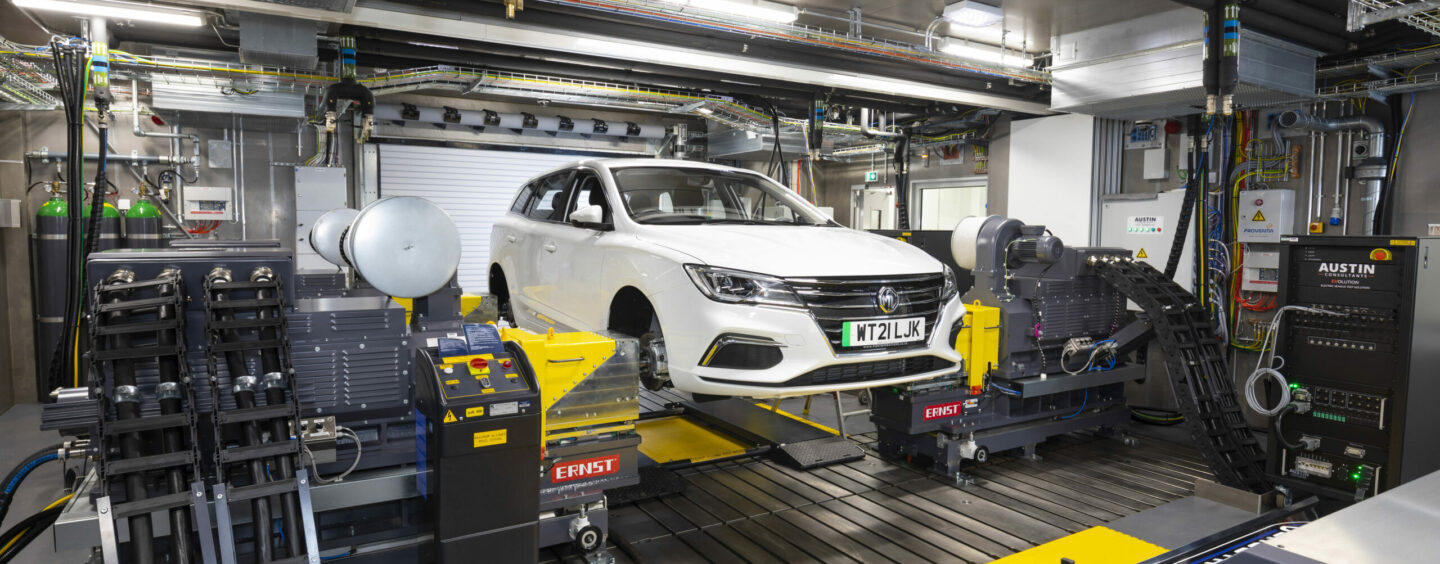There can be little doubt that electric vehicles are the wave of the future – with the drive to replace polluting fossil fuels, EVs are a way for the world to clean up its act and embrace a more sustainable form of transport.
Yet to really build a market, drivers need to be convinced that EVs can offer the same advantages and specification as conventional vehicles – proving that they can offer high efficiency, maximum range between charges, reliability and high dynamic performance is essential.
To help them show that their vehicles perform as customers expect, EV OEMs turn to specialised companies with the experience and expertise to test and refine the design of motors, batteries, drive trains and control systems.
Based in Milton Keynes in the UK, Intertek is one such provider. It has the capacity to test any vehicle, from standard road going cars for the consumer, to ultra-high performance Formula E racing cars.
High speed testing
A typical test might see an electric racing car being tested for its ability to hit 100km/h in 2.8s from a standing start and reach a top speed of 280km/h. Some of the electric motors that Intertek tests can reach 28,000 rpm – as we might expect, a special measurement solution is needed that can meet the requirements of this demanding test regime.
Intertek found the answer in the Yokogawa WT5000 Precision Power Analyzer. Those high motor speeds are measured using a sampling rate of 10MS/s. Intertek’s WT5000 units also perform high-frequency harmonic analysis up to the 500th order, providing side-by-side comparison of harmonics from two different input sources.
Top usability
Another essential requirement from Intertek was usability and the WT5000 certainly delivers. It offers a high resolution, 10.1” display, allowing split screen viewing of up to eighteen waveforms at once. The analyzer can display up to 12 pages of various measurement parameters, making it ideal for efficiency tests of inverter-driven motors and electric vehicles.
Flexibility and ease of test set up is another must have for Intertek. The WT5000 has seven slots for user-swappable input elements and can evaluate up to four motors simultaneously. This allows Intertek to expand or reconfigure the instrument as applications and needs change, while raw data can also be streamed to a PC for detailed analysis.
When it comes to efficiency calculations, Intertek engineers doing these themselves is a thing of the past – the WT5000 takes data straight from the torque transducer, displaying both speed and torque measurements right on it screen.
Testing EVs is a demanding task and with the Yokogawa WT5000, Intertek is set to help the industry prove it can give drivers the experience they expect.
Read the full case study with Intertek.



No Comments so far
Jump into a conversationNo Comments Yet!
You can be the one to start a conversation.